Lennon Stella’s Manager, Genevieve Thompson: Exclusive SmartistU Interview
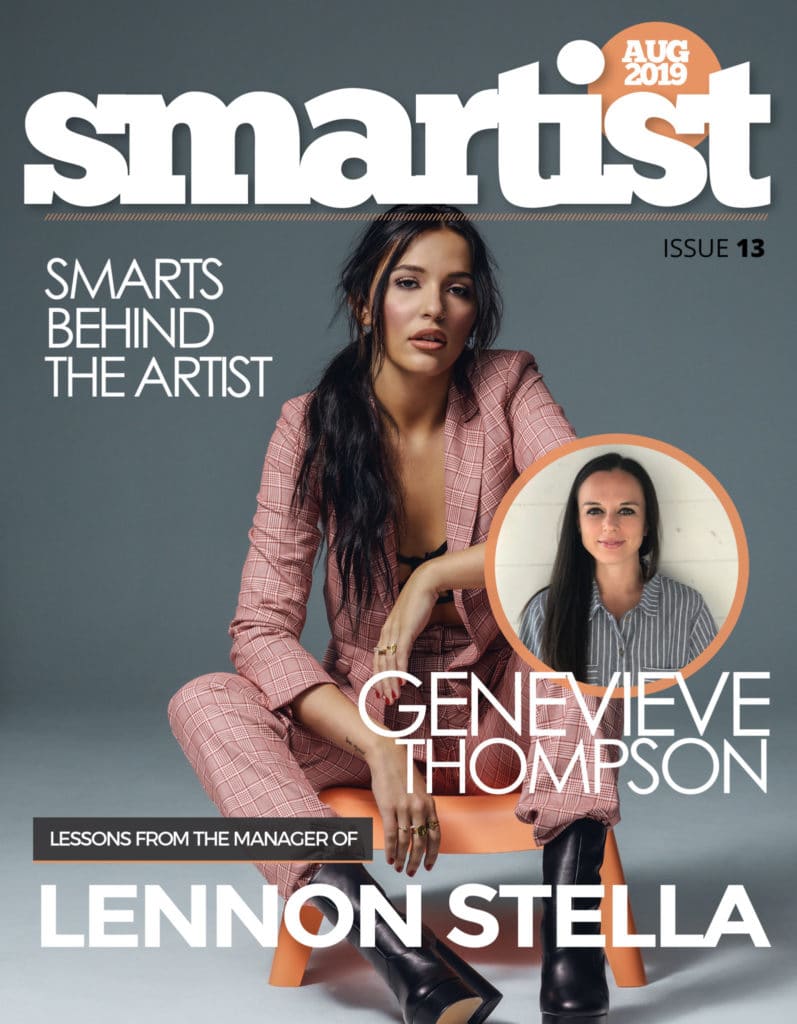
In this edition of Smartist Magazine: Smarts Behind The Artist, we hear from Genevieve Jewell Thompson, current manager of Lennon Stella and Maisy Stella, from the hit TV show, Nashville.
After graduating from college early to get her start in the music industry, Genevieve found her way to Nashville, moving up the ranks quickly and working with country music superstars such as Lady Antebellum, Keith Urban, Faith Hill, and now Lennon and Maisy Stella.
As a duo, the Lennon & Maisy YouTube channel has over 100 million views and over 750,000 subscribers.
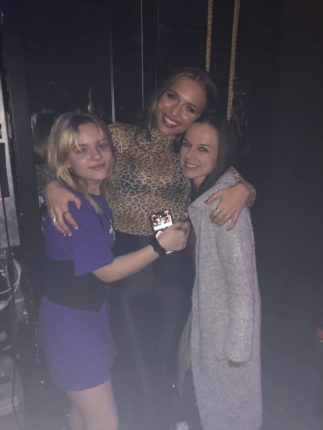
As a solo artist, Lennon has had 9 of her original songs featured across 15 episodes of Nashville, her single “Like Everybody Else” went #1 on US and Canada Spotify Viral Charts.
After Nashville announced its series finale, Lennon announced the release of her debut solo album, Love, Me. As a solo artist, Lennon has already raked up a few hundred million streams on Spotify, and this fall, Lennon is supporting The Chainsmokers on their U.S. and Canada tour.
In this interview we find out from Genevieve:
- How she tenaciously but carefully landed Lennon and Maisy as clients after they landed their roles in the hit TV show, Nashville
- What it’s like working with minors
- How Lady Antebellum’s release strategies helped them break a record for album sales without even having a top radio hit
- Whether an artist is signed to a label or not, it’s still a lot of work
- How her favourite part of management is helping everything come together cohesively
- How artists look for someone they can trust, and how managers look for someone they’re passionate about
- How she won’t get involved with an artist if she doesn’t think she can deliver
- Knowing when and how to deliver difficult information to your artists
- How managers have to be the rock
- Having work-life-balance and taking vacations as a manager
- Her biggest lessons and advice for new artists & managers
Read on to learn more!
Your first industry job was with Nettwerk Music Group. How did you get that job?
I interned for Nettwerk out of their LA office while I was in college. When I was in LA they told me about their Boston office, which is where I went to college (in Boston), so they recommended that I go back to Boston and keep working for the company there. While I was interning for them they offered me a job. So I actually ended up graduating earlier than I was supposed to so that I could start the job at Nettwerk.
At Nettwerk you did digital marketing, what was your favourite marketing project that you worked on?
One of the artists I worked with was a band called “Guster”. They were a really creative band. To be honest, I can’t remember one specific campaign, but I always enjoyed working with them.
From Nettwerk, you then went to a company called Borman Entertainment. Who did you work with at Borman?
When I joined Borman they had Keith Urban and Faith Hill. Right as I joined the company they signed Lady Antebellum. They were brand new. They had just formed as a band. They initially started off as a writing trio and then started playing shows together, and decided to do the band thing. When we signed them, they were signed with CAA, but they didn’t have a label yet.
In addition to those acts, I also worked with artists such as Alison Krauss, Michael Franti, My Morning Jacket and numerous others.
That’s great that you got to start with Lady Antebellum before they were anybody.
Yeah, that has been one of the highlights of my career.
Is there a project that you worked on with Lady Antebellum that may stand out as one of your favourites?
There are so many things that I enjoyed working with them on. When they entered the music industry, they were willing to take chances and do things that others weren’t, especially in the digital world. So that was fun for me.
With their first album, we started doing video pieces called “webisodes” — each week we put out a new behind-the-scenes video of whatever they were doing that week. That doesn’t sound unique today, but back then there weren’t a lot of artists doing that, especially in country. We basically super served the fans online with content. When their debut album came out, they broke some sort of record in terms of having the number one album, without having a top 5 song at radio, which was unique for the genre. A lot of people attributed the success of the album to all the digital work that the band did for the release of that album.
With their second album ”Need You Now”, that was an incredible album to work on because that song exploded. In the industry, we do projections on what we expect an album to do first week in terms of sales. The week that album came out, it shattered those projections. Everyday they were surpassing what had been projected the previous day.
They had a number one with a song called “I Run To You” which was their last single off of their debut album, but “Need You Now” the single was by far their biggest global number one hit.
The strategies that you guys had with that song, would you say it’s still kind of the same today? Or do you have totally different strategies today?
To some degree it’s the same. I can’t remember exactly what year that song came out, but the industry has certainly changed since then. There was no streaming back then. What we did then versus how you would release an album or a single today is definitely different just because the industry has evolved.
Let’s say Lennon (or any artist really) is ready to release a new single or even a new album, you sit down and you come up with your new marketing plan, are there steps that you take every time?
I think there are a lot of typical things that have to happen with every song release… for example, coming up with the single artwork, figuring out the music video, press release, etc. Once you figure out your timeline and the basic items, then you can start getting creative and figuring out the other parts that help to make each release unique. I try to do things a little bit different with every song that we release in terms of what the strategy is surrounding it. For example, the TV, press, touring and social media strategy typically varies a bit with each song or album release.
Are your artists signed, and do the labels direct the marketing? Or are they more independent and you direct the marketing?
It totally varies. For me personally, probably 60-70% of the acts that I’ve worked with have been on a label. With the artists that have been on a label though, I wouldn’t say it’s the label necessarily directing it. It’s the label and management working together, hand in hand, figuring out the strategy. Every label is different in the way they handle things, but for the most part, it’s always been a partnership.
I think that’s a big misconception with a lot of new managers or new artists, they think that once they get signed to a label it means that they get to sit back and the label comes up with everything for them.
I think a lot of people think that. Whether the artist is on a label or not, it still equals the same amount of work. In today’s industry, labels expect the artist and manager to come up with, and execute, the brand and vision of the artist. Labels want to see that the artist is working as hard, if not harder, than the label. There are a lot of artists and not nearly as many labels, so artists need to be prepared to work hard if given the opportunity to have a label as a partner. The label, artist and manager all need to work together to break the artist. It takes a village!
Just like the artist manager relationship.
Yes
You’ve been primarily an artist manager your entire career. Does this include always being the main responsible manager?
Not always. When I first started out, I wasn’t the main responsible manager, but I was always on the artist management team. I had to work my way up the ladder and learn the ropes before I was given my “own” act to look after. In bigger management companies, there are typically a lot of people on the team, doing different roles. My career has always been in management though.
What is your favourite part about management?
As a manager, you’re involved in every different area of the artist’s career. You’re strategizing and figuring how to layer different parts of the career to help everything come together in a cohesive way. I think that’s the part I love the most. For example, you’re figuring out how to pair the release of music with a tour and a new merchandise line. It’s very gratifying once everything does start working, and you see the plan that you put in place come together in real life.
What do you think is your most important role?
That’s a tough one. I think one of the most important roles of a manager is being an advocate for the artist and making them feel like what they want to achieve and how they want to be presented as an artist, is what is happening. I also think it’s really important that a manager make an artist feel like someone else is handling the business portion of their career so that they can focus on being the best creative artist that they can be. That way they don’t have to worry about how everything is going to work out.
You started working with Lennon and Maisy when you were working with Back 40?
Yes, I started working with them over 5 years ago. Back 40 was essentially the label entity that would release Lennon and Maisy music. So I was wearing different hats, as management and label.
And then last summer you partnered with Mick Management, tell us about how that happened.
I had done work with Mick Management in the past when I was at a company called Borman Entertainment. We had clients that toured together. I always respected and admired the work that Mick did with their clients. I started speaking with Mick Management as they were interested in starting a Nashville division and I was at a point where I missed having a larger team of people to work with, and bounce ideas off of. We started talking, and I felt like we were incredibly aligned on the way we manage artists and how we view growing careers, so we decided to partner. It’s been a wonderful partnership.
How did you become the manager for Lennon and Maisy?
I saw a video of theirs go viral online, and then shortly thereafter, I saw them on the TV show Nashville. When I saw that first video of them online, I was blown away by their talent at such young ages. I reached out, and started speaking with their mom. She told me they were taking their time and weren’t looking for a manager at that point. Everyone in the industry was trying to sign them. Lennon and Maisy were already cast on the TV show and they didn’t want someone to get involved who was going to try and make their girls work more. They were only 8 and 12 at that point.
I don’t know what it was, but there was something about that first YouTube video that I saw of them that I was blown away with. I could tell they were incredibly talented. I took my time in getting to know the family, and essentially positioned myself as someone they could turn to for advice, but would not getting any pressure from. I would check in from time to time, and let them know I was watching everything they were doing and were cheering them on. I think it probably took about a year or so to finally get to the point where they were like ‘ok, we’re ready to sign with you’. I was very tenacious about it (laughs).
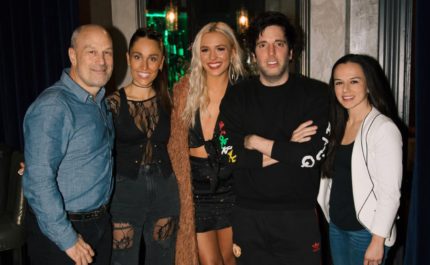
Good for you for landing them.
Thank you.
Who were you working with at that time already?
I was with the company called The Collective. The Collective was a big management company based out of Los Angeles. I ran the company’s Nashville division. I got to a point where I was ready to do something else, and on my own, so I left The Collective to start working with Lennon & Maisy.
And right off the bat, you were a full-time manager with them?
Correct.
I guess they were busy enough at that time for you to be full-time?
Yeah, there was a lot going on. They were also really young when I started working with them. It’s very different working with kids verses working with adults. You can’t just send a 12 year old out to a press interview on their own. You have to be very hands on in everything they do, and also consider the fact that they are children, so they are not capable of making the decisions that an adult would make. There is also a whole other level of ethics to factor into it – for example, deciding if they should have the weekend off to have a friend sleepover vs. playing a show.
Yeah it must be totally different; you have to send their parents out with them every time I guess?
Yes, their family was involved in everything.
And you would have to get their parents to sign off on everything and not themselves.
Yes.
And did that mean you had be at everything as well? Managers don’t always go to everything.
Yeah, I pretty much went to everything, along with their parents.
Are you looking to take on new talent or are you strapped with Lennon and Maisy or do you manage other artists?
At Mick Management we all help each other out with different clients where needed. I’m always interested and looking at new clients, but I would need to come across someone really special to want to get involved. There are some managers that want a bunch of clients, and to each their own– for me to want to get involved with somebody, it has to be because there is something really unique and special about that client. It takes a lot of time and energy managing people, so if I get involved, I have to feel like I’m willing and able to give that person 110%. I have a “it must succeed” mentality. When I find the right person, I will sign more clients.
What kind of advice would you give other managers on how to sign a new artist that they’re interested in?
First and foremost, look to sign somebody that you’re passionate about. There was a time in my career in which I signed somebody because they were making money and I thought that would be a good reason to sign someone. Of course everyone needs and wants to make money, but first and foremost, I have to be passionate about the artist I’m working with.
As a manager, you spend so much time and energy on a client, especially with new and developing clients. More often than not, it can take years until you’re finally monetizing off of a client. If you’re not passionate about the artist you’re working with, it’s really hard to stay motivated in wanting to work with them.
A great way to start a relationship with an artist is reaching out and offering to support and help in any way possible. Artists want to surround themselves with people who they, one, feel are passionate about them, and then two, they feel like they’re people who they can trust and have the same vision they have. Being someone the artist can rely on and showing them that you’re willing to help out and do stuff for them early on, says a lot to an artist.
What would you say helps build trust with an artist and a manager?
Being completely honest and truthful. I think that’s really really important in the relationship. If you tell an artist you’re going to do something, do it.
I never want to get involved in somebody’s career If I don’t feel like I can deliver on everything they are looking to achieve. I think trust is something you build over time with an artist. As you advise them on what they should be doing and executing on their behalf, and if their career is moving forward in a positive direction, then I think they grow trust in you as a manager. One other key point that I’ve learned in my career is to under promise and over deliver.
Often times you’re going to have to deliver difficult information. Maybe they didn’t get signed to the label they wanted, or didn’t get the show they wanted. How do you navigate difficult communication like that?
You always want to be thoughtful and sensitive of people’s feelings and how they’re going to take something. I try to be as gentle and sensitive as possible when I have to deliver news I know the artist will be upset about. With that said though, I’m also honest about the reasoning why something may have not worked out because I think it’s important the artist has a proper understanding about what is going on in their career. Maybe they didn’t achieve what they want to at that moment, but that doesn’t mean that it can’t happen in the future. So the more understanding they have a situation, the better they can make the necessary changes to achieve what they want to achieve in the future.
As a manager, you have to have good people skills. You need the ability to read people and understand a room without someone needing to tell you what’s going on. With artists and addressing not so favorable news, it’s important to know when to address situations and when not to. A lot of it is your timing as a manager.
For example, factoring in what they are doing that day. If the news you need to deliver is going to derail what you need them to achieve that day, it’s better to talk to them about it another day. Or if they are having a bad day personally, it’s best not to pile on to that. There are a lot of things that a book can’t necessarily teach you, you just learn over time.
What about when you are having a bad day? Being a manager, you’re in a tough position with managing other people’s expectations and sometimes other people’s emotions, but what about when it’s a bad day or a bad week for you?
As a manager, you need to be the rock. As in almost every job, you need to be a professional while working. If you are having a bad day, keep it to yourself and deal with it on your own time, when you’re not with the artist. Artist can be sensitive and sometimes can pick up on the energy others are giving off, which can affect their day. As much as you can, you have to deal with your own issues on your own personal time.
Is there such a thing as work-life balance to you?
I think there is, to some degree. I remember being in my twenties and that always seemed to be a big topic of discussion with all of my friends. We were always trying to figure out our work-life balance. Now in my thirties, I feel like I have a much better handle on it. You figure out what’s important to you and prioritize that. If there is ever a point in your life where you feel a little off balance and you need a break, you figure out how to take a break.
My husband and child are my priorities. When I get home from work, I make sure to set aside a couple of hours to spend time with my son and not be distracted by my phone or email. It’s not always easy and there are days when I can’t do it, but generally I try to stick with that rule. The workflow never stops, so you have to figure out when to set aside time to do things that are important to you and make you feel whole.
Do you take vacations?
I do, and I think it’s important that everyone does. There are certain times during the year that the whole industry seems to be off. For me, I try to align my vacations with those time frames as it’s a time where I feel like I can actually step away from email and not be completely bombarded. Everyone needs a break from time to time. I fully believe that if you work 24/7, you will not be able to operate at a 100% during the times that matter most. It’s not always easy taking a vacation, but I always come back feeling rejuvenated and so glad I did it.
You figure it out over time, and it also probably helps working with the same artist for a long time, you figure out each others’ typical schedules, and you get a little more comfortable saying “I’m going take a week off”
Exactly. I always take into consideration what my clients have going on and wouldn’t schedule a vacation the same week they have something important going on. I try to be as mindful as possible.
Looking back at your journey so far, what is your biggest music industry/artist management lesson?
It’s hard to say what my biggest lesson has been. There have been so many that I have learned throughout my experience in the industry. Some of those lessons include to stay tenacious on something you want to achieve and take advantage of opportunities in which they help you build relationships with your artists and/or others in the industry.
Do you have any final “do NOT ever do this” advice for aspiring artists & managers?
You should never think you’re better or above anyone else. This industry changes quickly and you never know where people will end up. It’s a small industry, so be kind to everyone.
Big thanks to Genevieve.
Whose business do you want to know more about? Tell us at support@smartistu.com or check out more interviews here.
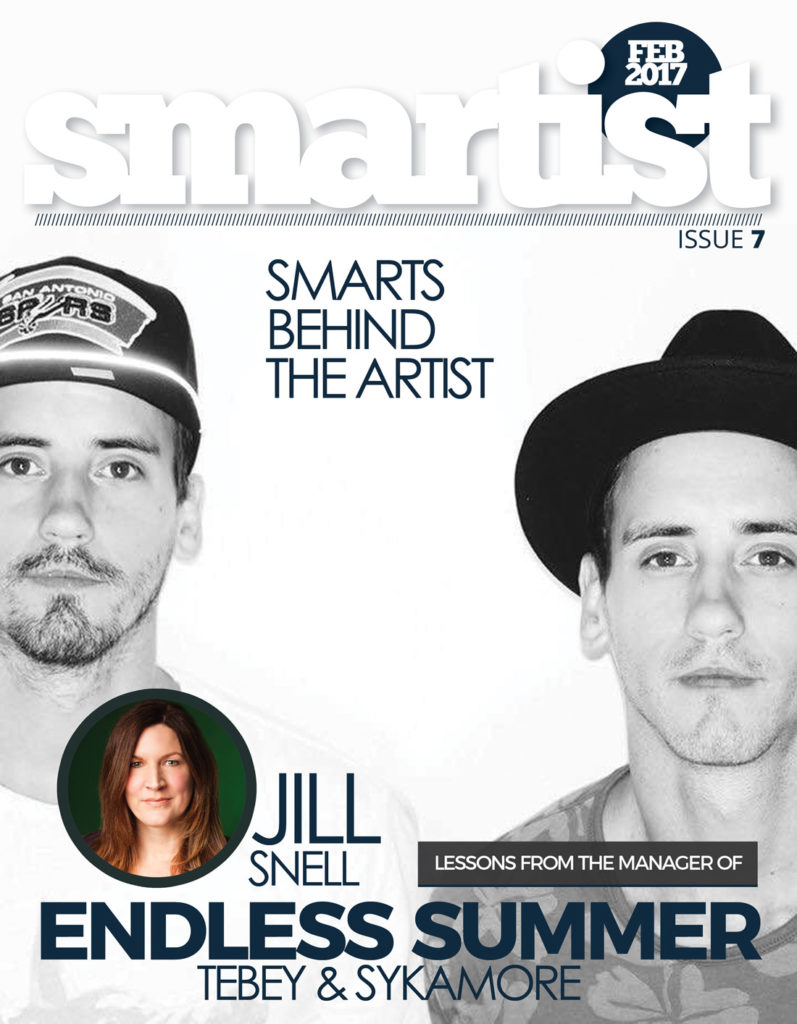
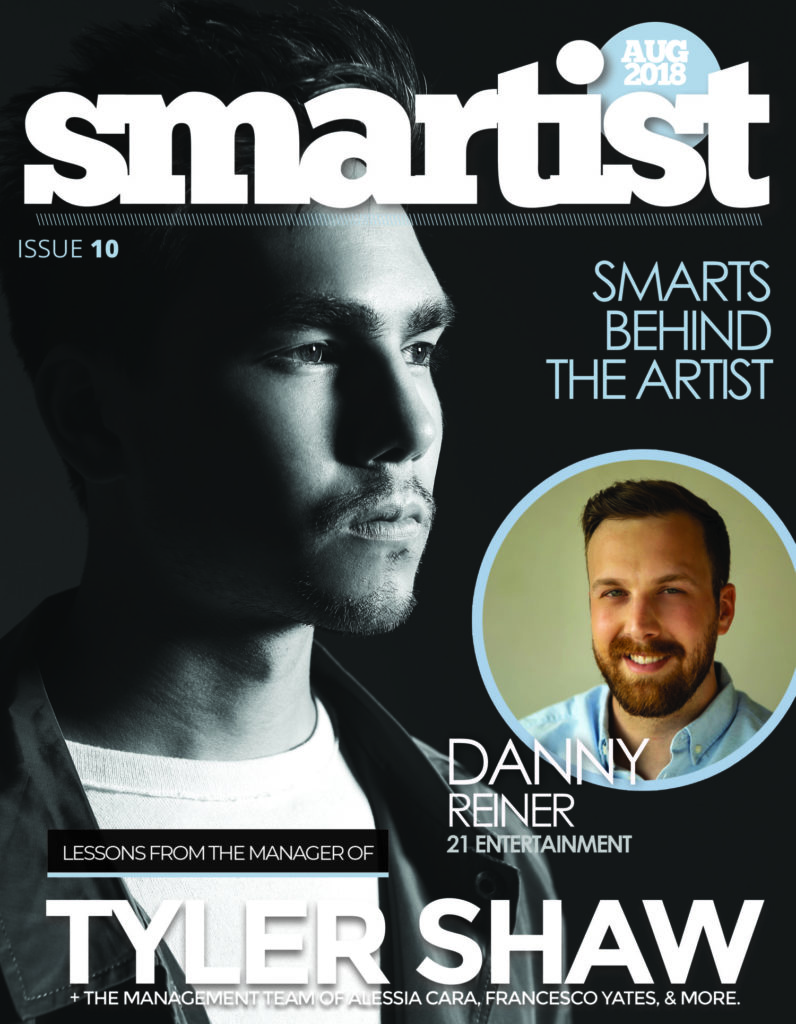
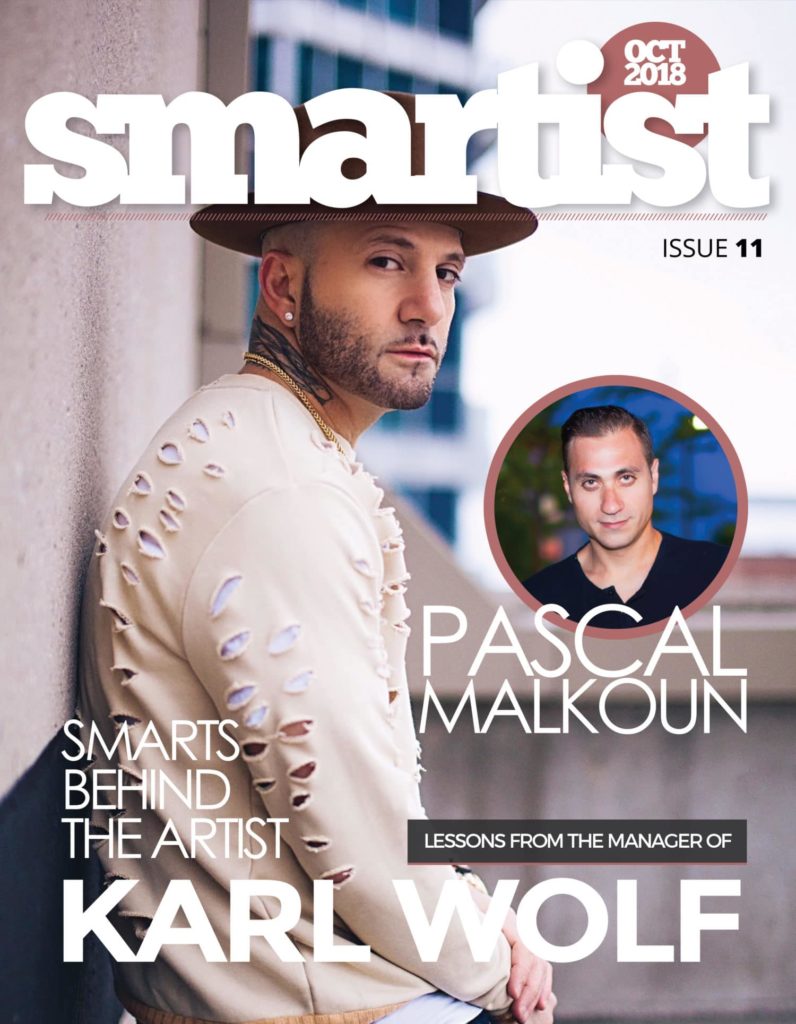
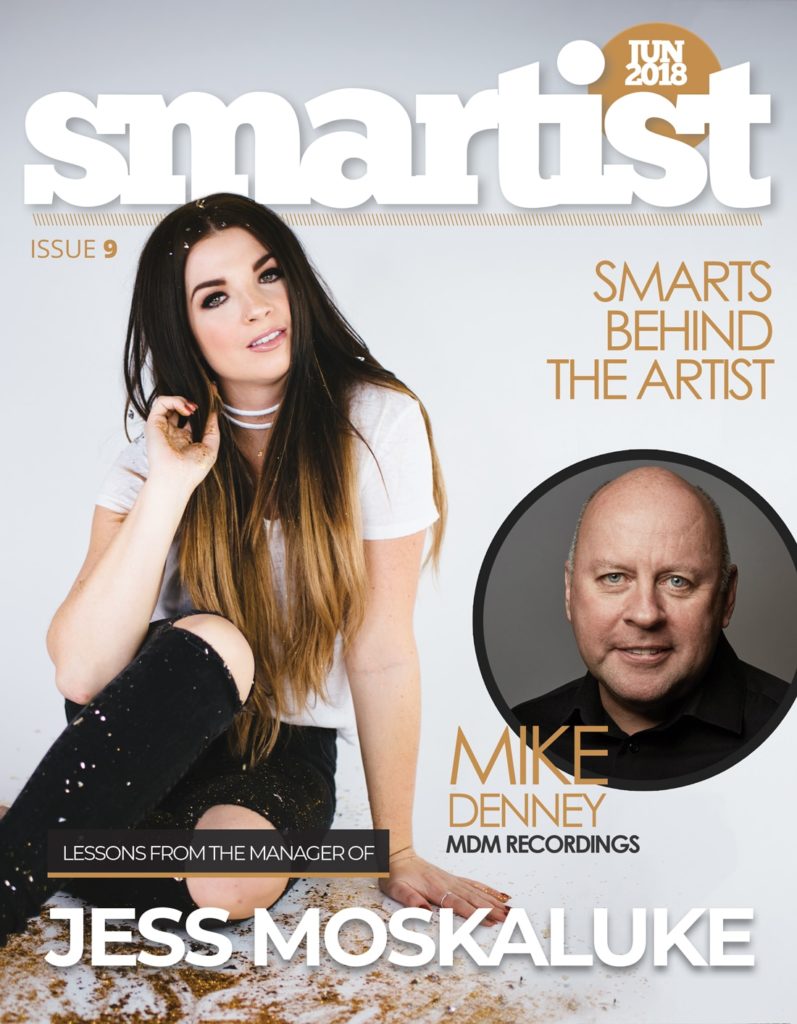
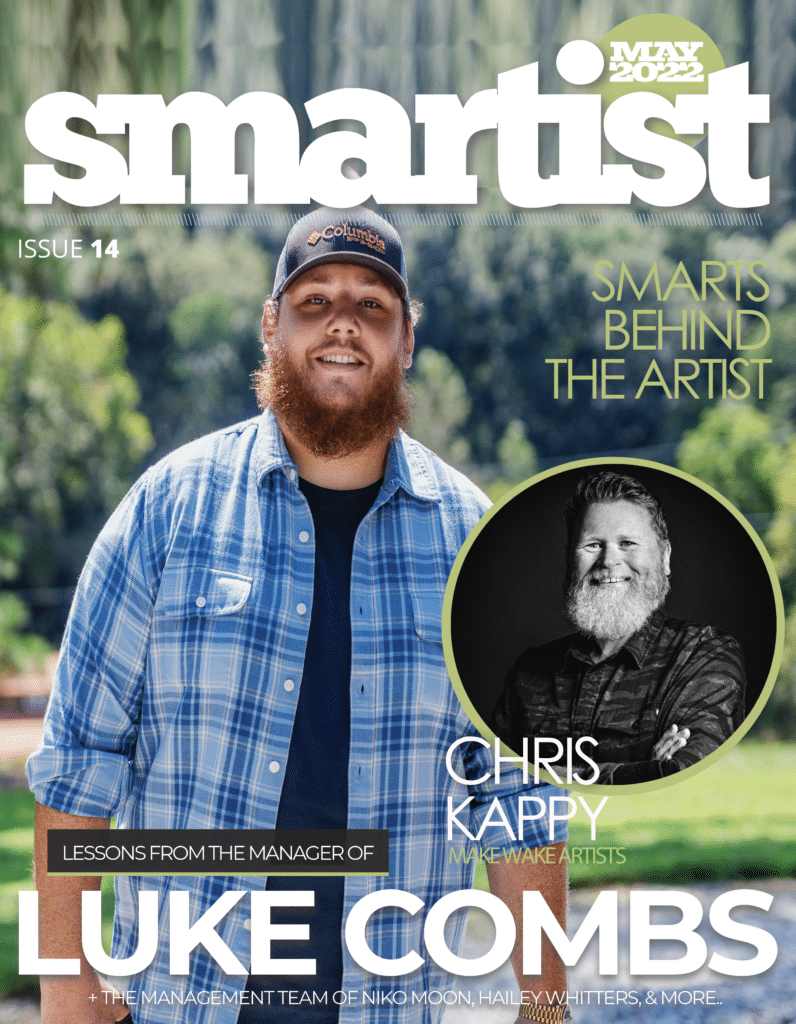
Responses